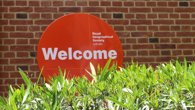The Society and the are pleased to have collaborated on a joint response to the recent government consultation on the reform of qualifications for the ages of 16-18 in England.ÌýÌý
The Advanced British Standard (ABS) is proposed as an alternative to A Levels and T Levels.
Our headline response is that the current framework of provision does not require wholesale curriculum reform. A Levels are respected and used globally, while T Levels have received significant investment from government and the wider engaged community and have yet to ‘bed in’. We do recognise that there are potentially significant benefits in widening the range of subjects studied between the ages of 16-18. While we are not simply proposing a return to AS Levels, we encourage consideration of ‘major-minor’ combinations at this level. This would both open opportunities for students to maintain a wider range of education and training options and help to give breadth to the skills and knowledge they can apply in their careers.
We also argue that in the near term, investment in better signposting and packaging of current pathways and in increasing teaching time for existing qualifications will be better received by the teaching profession, and provide greater impact and better value for money. This approach is therefore more likely to be successful in raising standards and realising the broader aims of the proposed ABS.
While general and wide-ranging, the consultation gave us the opportunity to reiterate some key contributions that the study of geography provides to young people in terms of knowledge and skills, as a route to vocational qualifications, and, of increasing significance in these demanding times, enhanced personal development, wellbeing and sense of purpose. This is particularly relevant with regard to geography’s core role in promoting sustainability and enabling the development of ‘green skills’ in relation to employment.
Maths and English are key aspects of the proposal, yet we did not gain a clear sense of how these subjects would be implemented in the ABS qualifications. However, there is clear evidence of the benefits of students developing and practising core English and maths skills within applied contexts. Geography is a leading example of how the value of mathematical skills (e.g. data and statistical) and communication skills (e.g. oracy, written communication, teamwork) can be made evident to all students. The centrality of fieldwork to the practice of geography is one important and distinctive strand of the subject which represents one of the ways in which the subject is unique in deploying English and maths while also supporting personal development and wellbeing.
We agree on the importance of increasing teaching time. This aim is set within a chronic crisis in specialist teacher recruitment, not least in geography. Hence recruitment and retention of subject specialists must be a primary focus in advance of any curriculum reform. We take this timely opportunity to state that we view it as essential that there is significant and sustained investment in scholarships and funded subject knowledge enhancements (SKEs), or similar measures, to support teacher recruitment.
ÌýFinally, we wish to strongly represent the argument that subject-specific teacher continuing professional development (CPD) programmes are most effectively delivered through learned societies and subject associations given the depth of experience and knowledge we bring as subject experts.
Ìý
Relevant prior consultations and links
Society links
Geographical Association links
Links relevant to the consultation regarding data skills
Ìý

